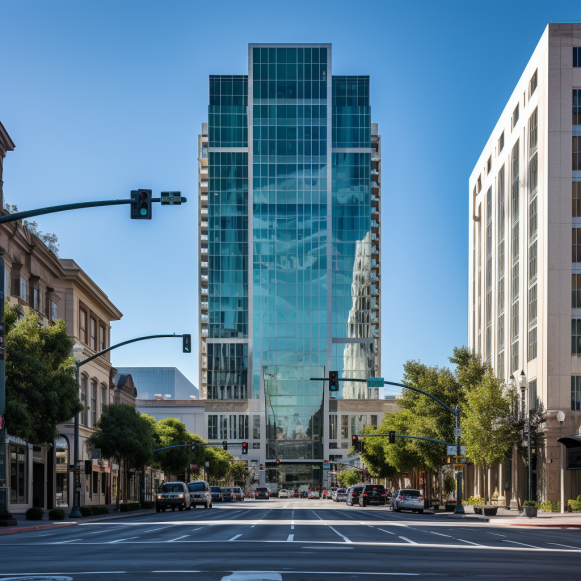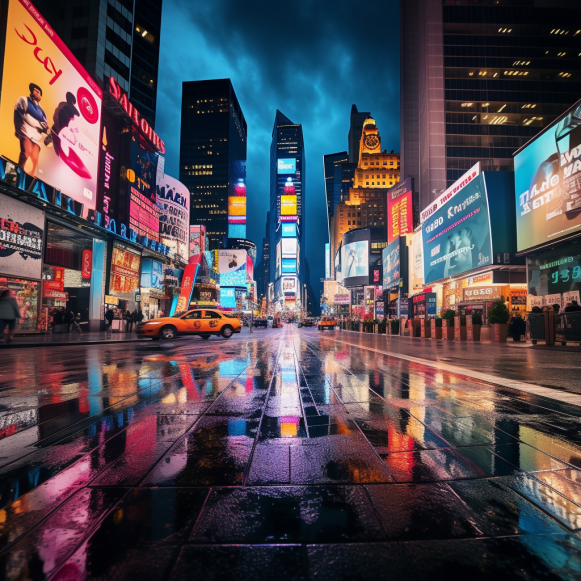San Jose hotel tower sale tied to SJSU advances — but some fears arise

Hotel highrise would be used to house San Jose State University students
SAN JOSE, Calif. — A deal to convert a downtown San Jose hotel tower into university housing for SJSU students is nearing completion, though a local union has raised concerns about tax and job losses as a result of the plan.
The agreement calls for the sale of the 264-room southern tower of the 805-room Signia by Hilton San Jose hotel, with a real estate developer purchasing the south tower and leasing the rooms to San Jose State University students.
The 541-room north tower would be owned by an affiliate controlled by Bay Area business executive Sam Hirbod and operated by Hilton officials under this plan. The address is 170 South Market Street in San Jose.
The San Jose City Council voted on Tuesday to approve the sale of the Hirbod group’s south tower to an affiliate of Mill Valley-based developer Throckmorton Partners, as well as the division of the current hotel property into two lots, one for the north tower and one for the south tower.
The south tower is empty due to the Bay Area’s shockingly low demand for hotel rooms, and hotel guests are only being booked into the northern tower. The empty tower means there are no transient occupancy taxes, or TOT.
San Jose Mayor Matt Mahan acknowledged that city officials were forced to make difficult decisions in order to accommodate the sale of the hotel’s south tower annex.
“We have to be responsive to market conditions, flexible, and evolve over time,” Mayor Mahan said in remarks prior to the council vote. “What we’re seeing is that the south tower is largely empty, generating no transiency occupancy tax and posing a significant financial burden on the hotel’s owner.” We want to make certain that the hotel is appropriately sized.”
However, officials from UNITE HERE! Local 19, whose members provide a variety of services at the hotel, expressed concern about the potential loss of jobs and tax revenue if one of the two towers is closed and converted to housing.
“This deal is bad for San Jose,” UNITE Here Local 19 business manager Enrique Fernandez said. “We are losing hotel rooms, union jobs, and there is potentially a loss of tax revenue.”
Rosemary Kamei, Vice Mayor, was also skeptical.
“I am not convinced that this is in the best interest of the city of San Jose,” Kamei said in a statement.
If San Jose State leases the south tower, several hundred SJSU students could live there, according to Charlie Faas, vice president for administration and finance at the university, during a brief presentation to the City Council.
“The San Jose City Council made a big statement about the importance of SJSU student housing downtown,” said Bob Staedler, principal executive of Silicon Valley Synergy, a land-use consulting firm. “There are more steps to come, but it will be a good outcome.”
According to Faas, who is also the chair of the San Jose Sports Authority, only two events would ever result in the massive hotel selling out all of its rooms. These are the Super Bowl and World Cup.
“Other than that, we’re not going to fill the place up,” Faas told the crowd. “We have a struggling hotel.”
For these reasons, San Jose State University students living in the hotel’s southern tower could make a significant difference.
“Filling it up with 800 students on a daily basis and then internships during the summer make a vibrant downtown,” Faas told the crowd. “All of these empty storefronts will be filled. People are feeling more secure. People are energized. And our students will benefit from a less expensive, more affordable living environment.”
The walk from the southern tower to the university’s Dr. Martin Luther King Jr. library on East San Fernando Street is shorter than the walk from the current university housing to the same library, according to Faas.
“Some people are afraid of students coming into the downtown,” Faas went on to say. “But students have money, students have activation, they have eyeballs that can provide safety for everyone.”
Omar Torres, a councilmember, raised concerns about the employment situation for unionized workers. The conversion of the southern tower to SJSU housing would eliminate a location where UNITE HERE! union members work, while the much larger north tower would remain a unionized hotel.
“People are concerned about potential job losses,” said Councilmember Torres.
Torres pressed Faas on whether or not the workers in the southern tower would be unionized.
“San Jose State is a union shop,” explained Faas. “Right now, we have 10 to 20 job openings.” If anyone is looking for work, we will gladly hire people in those open positions at the university right now. According to the Signia owner, there will be no job losses at the company. But I have open positions. We are a union workplace. We would hire people in an instant.”
However, for Fernandez of UNITE HERE!, the prospect of the tower sale heralds a bleak economic landscape.
“In the long run, we are losing good-paying jobs because the hotel is not going to need as many employees,” Fernandez went on to say.
Torres eventually voted in favor of the proposal, which was approved unanimously.
“It’s unfortunate that we have to move forward with this project, but it’s the best option we have,” said Councilmember Torres of downtown San Jose. “I need to balance our business interests and our working-class community and our major university which is San Jose State.”
Torres also stated that he believes the university will work to keep unionized jobs when the conversion occurs.
“I feel really comfortable working with SJSU to make sure that our South Bay Labor Council has a seat at the table when it comes to this, and also that (San Jose State leaders) are committed that there will be no job losses for UNITE Local 19,” Torres said in a statement.
Councilmembers said that in the end, San Jose officials were forced to take a difficult but necessary decision.
“I hope that in a couple of years, we will be looking at expansion and investment in new hotels because we will have so much demand as our downtown bounces back,” Mahan said in a statement. “Unfortunately, as we realize, that isn’t the moment we are in and hasn’t been for a few years now.”
Without a tower sale, Mahan warned the hotel would be in serious financial trouble. According to real estate experts, a completed deal would provide a cash infusion for the hotel as well as significantly increase occupancy due to fewer available rooms.
The hotel declared bankruptcy in 2021 and reopened a little more than a year later, in 2022, after the bankruptcy case was resolved.
“We have a really unique opportunity here to have 800 students from San Jose State to move out into the rest of the downtown,” Mahan, the mayor of San Jose, said. “The vibrancy and added foot traffic and customer base for retail will actually help attract additional investment in the downtown which could go to future hotel construction, future residential.”






